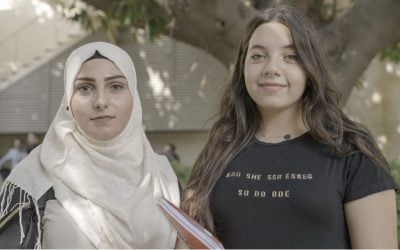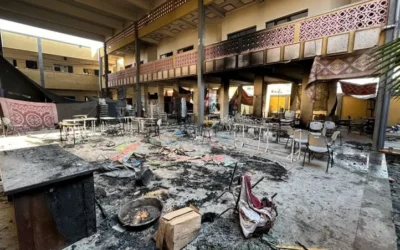Key insights about learning online
The Abdulla Al Ghurair Foundation for Education share insights gathered from over 700 of their scholars, highlighting their unique experiences and challenges faced during the current shifts in education.
As the pandemic ushered in an era of emergency remote teaching, the Abdulla Al Ghurair Foundation for Education wanted to make sure we gained an appreciation for how our scholars were adapting to the situation. We asked over 700 scholars about their unique experiences and the challenges they faced during this transition. While our Open Learning Scholars’ Program (OLSP) students were already enrolled in programs specifically designed for online delivery at a university with a wealth of experience in delivering online programs Arizona State University, our STEM scholars were pursuing residential programs at 15 partner universities. As expected, the different institutions were responding to the pandemic in different ways and often implementing these emergency responses overnight. Over 60% of our scholars shared their views, and we discovered some interesting findings. The scholars highlighted that there are 4 key insights we need to know.
- Most STEM scholars rated their overall online experience as average compared to the OLSP scholars
STEM scholars who reported facing higher levels of disruption to their studies are experiencing higher levels of anxiety and greater difficulties coping relative to their OLSP counterparts. Although most STEM Scholars rated their overall online experience as average, 69% of OLSP scholars (most of whom were in their first year of online study) reported having a positive online learning experience since the pandemic began. Although that is a majority, it is notable that 94% of OLSP scholars rated online learning as positive before the pandemic!
- Socio-emotional connections make an impactfor students
Frequent and meaningful online interaction between students, their peers and faculty are important. Students who shifted from in-person education to online reported that their main challenge is a lack of interaction with their peers. Almost half of AGFE STEM scholars needed to return to their family homes as campuses and borders closed. Students lost the ability to interact in person and reported that there are limited opportunities to engage with fellow students online. Interestingly, OLSP students highlighted that it is those interactions with their peers that make their online learning experience positive.
- Students must have access to, and be encouraged to seek, non-academic support
Even when resources and opportunities to engage with staff are included in their program, students do not always avail of them. 40% of OLSP learners reported that they were not coping well yet only half of those sought out support. Students reported that they did not know that such resources are available, how to access them, or that they simply did not feel comfortable reaching out for help. These issues were only exacerbated by the sheer volume of resources shared in the wake of the pandemic and the stigma that still exists around mental health support.
One key factor in the OLSP’s impressively low drop-out rate of less than 1% is that each student has access to a personal enrolment coach, success coach and academic advisor to help them navigate the various challenges faced along their journey. However, the value of these resources depends on students knowing that they exist and being able and willing to access them when necessary. A culture of proactively seeking support should be nurtured amongst students and regular checkpoints with university staff must be included within the program.
- Students’ mental health has been impacted across the board
OLSP scholars, like students globally, suffered from poor mental health and low motivation amid the pandemic. Households have been busier, internet connections weaker and quiet spaces to study less available during lockdown and with most OLSP scholars working alongside their studies. All this among financial crunches that are especially significant for scholars who earned needs and merit-based scholarships. Over two-thirds of employed scholars reported that their financial situation had been negatively impacted and almost 90% of those who were unemployed had either struggled to find, or lost, an opportunity due to the pandemic. With mental and physical health being negatively impacted across the board, student support, wrap-around services and community interaction have never been so crucial.
This pandemic has brought existing student needs to the forefront in the region, but also highlighted key opportunities for education institutions to improve their programs during and beyond crisis mitigation. From our scholars, we learned that it is the tailored AGFE wrap-around services, frequent and meaningful interaction with their faculty and peers, and access to support staff that allow for a high-quality educational experience online. Whether shifting newly to online education, or having experienced tenure with the modality, institutions and faculty have the opportunity and responsibility to learn from their students, staff and from each other. We all need to join forces and work together and change how we offer education beyond just courses online.
Rawan Yasmin, Head of Open Learning & Scholarships, Abdulla Al Ghurair Foundation for Education; and Emma Fleming, Education Program Officer, Abdulla Al Ghurair Foundation for Education



